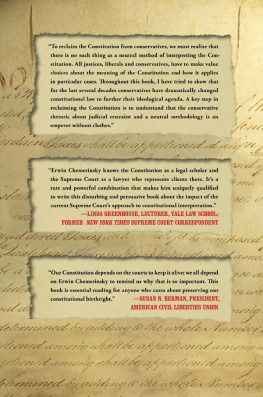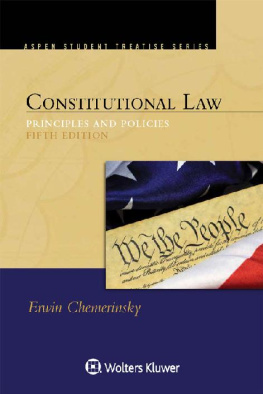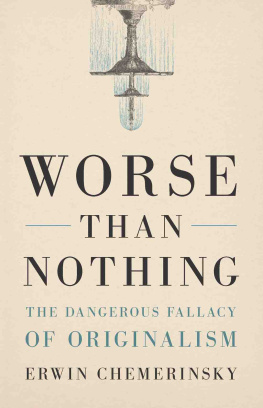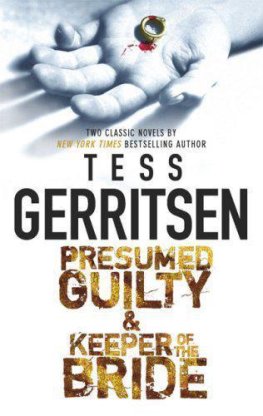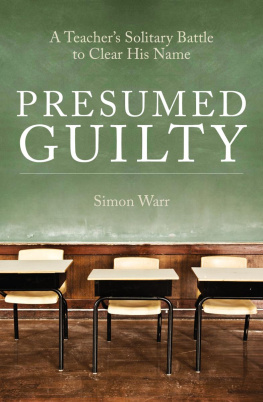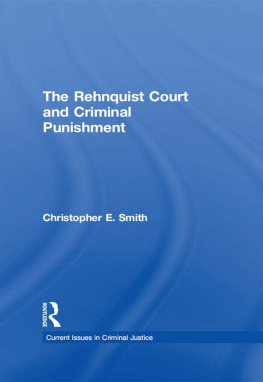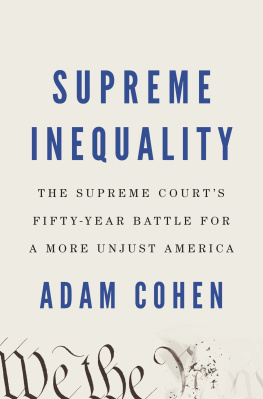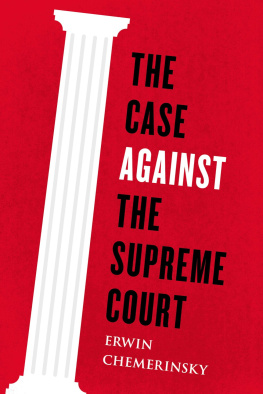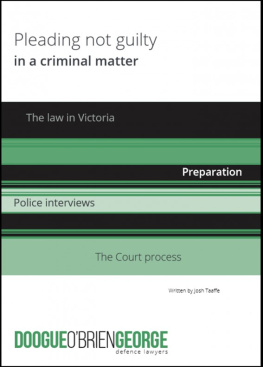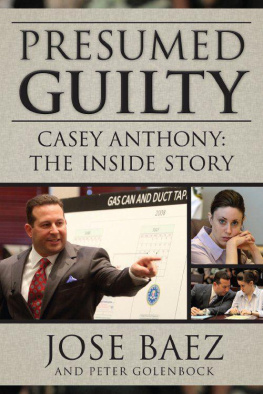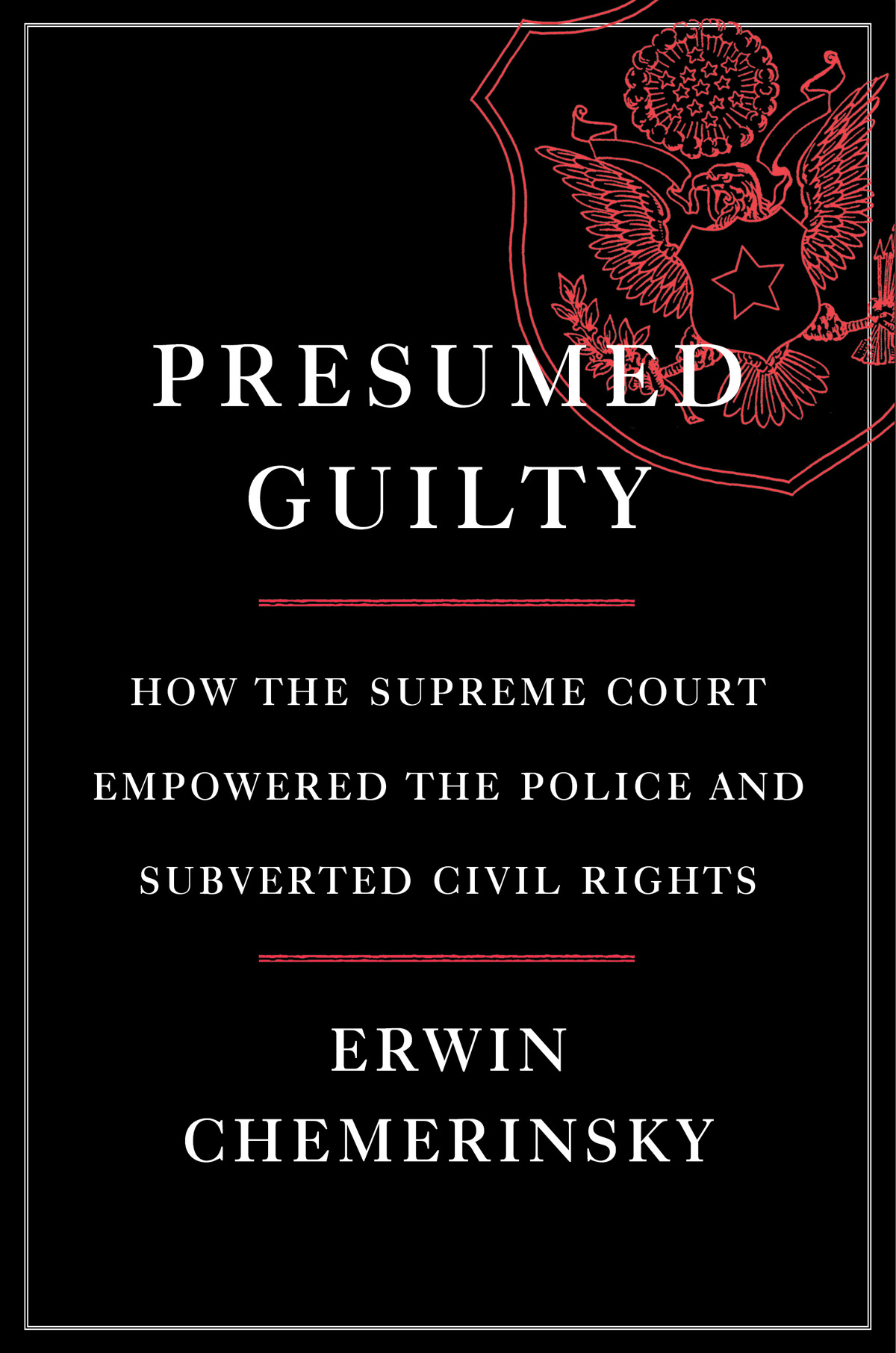Contents
Guide
Page List
Police stand outside the Supreme Court building in Washington, as President Donald Trump nominates federal appellate judge Neil Gorsuch to the Court, January 31, 2017. (Paul J. Richards/AFP via Getty Images)
PRESUMED
GUILTY
How the Supreme Court
Empowered the Police
and Subverted Civil Rights
ERWIN
CHEMERINSKY
For Catherine
CONTENTS
T ODAY IN THE UNITED STATES, MUCH ATTENTION is focused on the enormous problems of police violence and racism in law enforcement, but too often that attention fails to place the blame where much of it belongs: on the Supreme Court. The Framers of the Constitution intended many of its provisions to constrain police, to limit what police can do and to protect the rights of us all, including those who are suspected and accused of crimes. Yet throughout American history, the Court has done an ineffective and indeed a poor job of enforcing those provisions. On the contrary, it has consistently empowered police and legitimated the racialized policing that especially harms people of color.
For a very brief time in the 1960s, the Warren Court expanded these constitutional rights and sought to significantly limit certain types of police misconduct. But overall the Warren Court was an aberration in American history. Time and again, both before the 1960s and after, the Court has refused to enforce constitutional limits on police conduct and instead has enabled them to violate citizens fundamental liberties. Neither the text of the Constitution nor the Framers intent supports these rulings. Instead, we must regard the Courts decisions as a consistent choice, throughout American history, to favor the interests of law enforcement over the rights of individuals and to ignore the enormous racism that has infected policing since the nations first days.
My aim in Presumed Guilty is to tell this story of the Supreme Courts failure to enforce salient parts of the Constitution and to limit police conduct. The Court develops the law case by case, over the course of its history, and therefore this book focuses on those decisions. The pattern that emerges from the cases is deeply disturbing. It is not hyperbole to say that as a result of these rulings, police today can stop any person at any time and frisk that person, a power that they use disproportionately against Black and Brown people. For suspects undergoing police interrogation, the rulings provide very little protection from coercion, so long as the officers dont use physical force. The Court has all but ignored the problem of false eyewitness identifications that have caused the convictions of many innocent people, especially when a person is identifying someone of a different race. The Court has made it very difficult for victims of police abuse to successfully sue police forces for damages, even when an officer used egregious excessive force that led to a citizens serious injury or death. In fact, the Court has weakened, or gutted, all remedies that Americans might use to challenge police misconduct.
My goal is to show how we got here and what this has meant for how policing is done on a daily basis and for peoples liberty, and especially the rights of people of color. Our society cannot effectively reform police until and unless we recognize its problems and take steps to overcome the Supreme Courts consistent failure.
American policing today shows a chronic pattern of persistent brutalities and flagrant disregard for constitutional rights. I am convinced that it is possible to reform and improve policing, but it requires that we have the will to enforce limits on police conduct. If the Court continues to fail to reform policingand I fear it will for the foreseeable future given that a majority of the justices have shown no concern or even awareness of the problemsthen we must turn to other institutions to control police behavior, check police abuses, and end racist policing. Congress and state legislatures can enact new laws to reform policing. State courts can interpret state constitutions to protect citizens rights and to impose limits on state and local police departments. The Department of Justice can aggressively enforce existing laws to reform police departments. All these actions could make a big difference in how policing is done. And perhaps someday, the Court will fulfill its duty of enforcing the parts of the Constitution that are meant to control police behavior and thereby ensure that Americans receive equal justice under the law.
Police force a man into a police car in Los Angeles, 1965. (Bettmann via Getty Images)
O N THE NIGHT OF MAY 25, 2020, A CATASTROPHIC event was videotaped and soon flashed around the world. George Floyd, a forty-six-year-old African American man, was killed by a Minneapolis police officer. Floyd, who was unarmed, had been suspected of passing a counterfeit bill. He was arrested by Derek Chauvin, a white police officer who had served on the Minneapolis police force for nineteen years. Chauvin knelt on Floyds neck for almost nine minutes while Floyd was handcuffed and lying face down, begging for his life and repeatedly saying, I cant breathe. Those same haunting words had been uttered by Eric Garner, another unarmed African American man, who died on July 17, 2014, when a New York City police officer, Daniel Pantaleo, put a chokehold on him while arresting him for suspicion of selling single cigarettes from packs without state-mandated tax stamps.
Over the years, dozens of other American citizens, disproportionately men of color, have died from police use of chokeholds. More generally, shouldnt courts be preventing police from practicing racial profiling, that is, stopping people of color far more often than they stop white individuals? Every time I teach a class on constitutional law or criminal procedure, my Black and Latino students tell of being stopped by the police solely for driving as a person of color; rarely, if ever, do I hear of this from my white students. Police stops always are upsetting and degrading and too often escalate into police violence.
Unfortunately, the kind of chokehold that killed George Floyd remains in use in most of the United States because of the Supreme Courts 1983 ruling in City of Los Angeles v. Lyons. That decision dramatically constrains the ability of the federal judiciary to stop police from using unconstitutional and racist practices like the chokehold. It has closed courthouse doors to civil rights litigants who seek to halt them. Because of the Supreme Courts decision, federal courts cannot hear cases that challenge the chokehold and seek to stop it from being used. As a result of Lyons, federal courts cannot issue injunctions to stop police misconduct, and they are very limited in what they can do to prevent police from violating citizens constitutional rights. In countless discussions with civil rights lawyers about how to stop illegal police and other unconstitutional government behavior, we so often come up against the same insurmountable hurdle to litigation:


